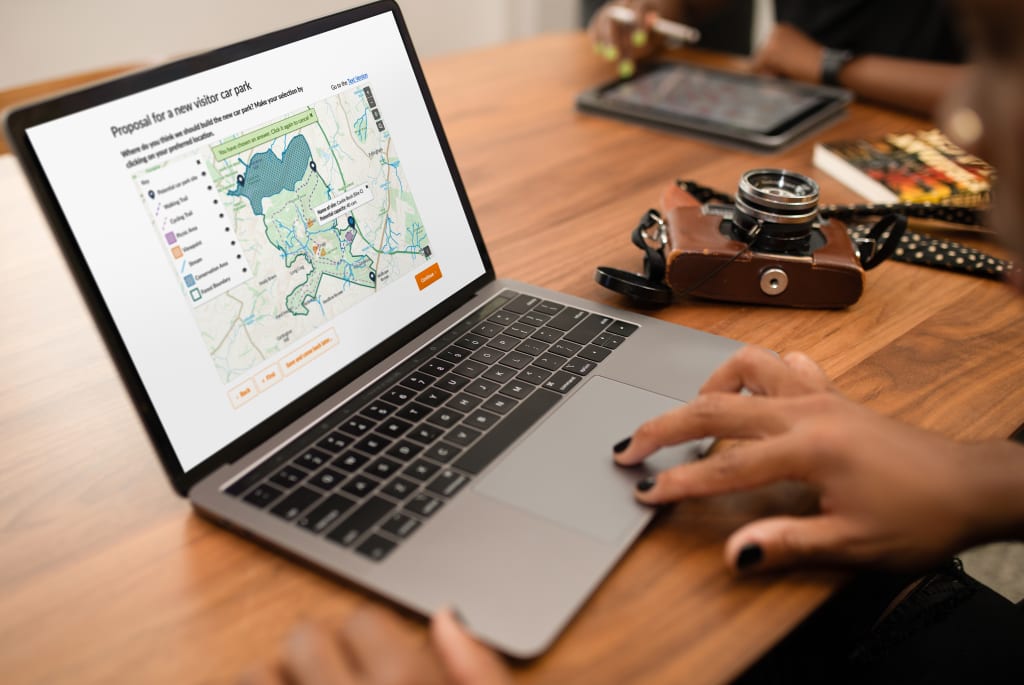
It might seem like financially the UK isn’t doing too great at the moment. In fact, world over, economies are on the downturn with global growth at just 3.1% at the start of 2024.
During difficult periods like this, making your engagement recession-proof and fostering a positive outlook on government consultations is necessary to improving relationships with citizens nationally.
When a recession or recession-like state occurs in tandem with a cost-of-living crisis, people naturally start to think more about the money in their own pockets than the wider scope of issues.
With that, comes a focus on government spending, but also, usually, a decrease in citizen engagement with government consultations. This usually leads to an increase in pocketbook voting.
What is Pocketbook Voting?

Pocketbook voting is when citizens vote based on economic concerns and personal financial interests. The immediate financial issue outweighs broader concerns and political ideology such as larger societal issues in favour of government spending that puts more money back into an individual’s pocket.
Ultimately, if you’re struggling to feed your family, you’re less concerned about how much money we should be funnelling into national defence, and more about lowering taxes, for example.The concept of “pocketbook voting” has fallen in and out of favour many times over the last several decades. Given the contention in academic realms about whether and how much people judge their politicians and government on how policies are showing up in their wallets, it’s easy to see how a weak dollar could make governments fearful of backlash, even on seemingly innocuous projects.
The concept of “pocketbook voting” has fallen in and out of favour many times over the last several decades. Given the contention in academic realms about whether and how much people judge their politicians and government on how policies are showing up in their wallets, it’s easy to see how a weak dollar could make governments fearful of backlash, even on seemingly innocuous projects.
Creating Positive Citizen Engagement During a Recession

Continuing to brave the public in tough times tends to have overwhelmingly positive results on general attitudes about democratic processes.
We saw this especially clearly in the 2008 recession. By embracing the risk of negativity and not caving on your public outreach budget for a short-term win, you’ll increase the sense of trust and often even crowdsource better ideas than the ones you thought of originally.
Prioritising Government Spending
The fastest way to lose track of spending is by taking your eye off your project’s specific goal. Who needs to be consulted, for how long, and on which topics? To avoid blowing out your budget on activities that don’t get the answers you need, consider these principles to stretch your resources.
To avoid excessive spending on government consultations that don’t get the answers you need, learn to prioritise budget placement:
Go back to basics
Everyone loves a gimmick, but when a recession is inbound, it’s often wiser to strip back unnecessary tools.
For in-person recession-proof engagement, prioritise outreach activities that will encourage your audience to come back to you, rather than costly one-and-done events.
For digital recession-proof engagement, prioritise tools that have longevity, won’t need a lot of work to replicate for similar projects, and that can be analysed internally if possible.
You’d be surprised how rarely price and payoff correlate, as what you can do with technology doesn’t always match what the user needs or wants.
During a government consultation, citizens want just two things: to voice their concerns and to be heard. However you choose to engage, make it easy for your citizens to participate and make it obvious that someone is listening to and actioning the suggestions.
This is as simple as Citizen Space’s “We Asked, You Said, We Did” which just showcases exactly how public engagement has changed government’s approach.

Use a sample market
Map out key demographics using open-sourced population information and downsize your outreach so your government consultation becomes highly targeted.
This will reduce the work needed to round up respondents and process results. You’ll find that by easing back on advertising and focusing your resources, those selected are more inclined to agree to participate in a formal consultation.
It’s better to get quality results than to get stuck in the weeds trying to source feedback from the public at large and possibly miss your window altogether because of costs.
Make engagement and government consultations thoughtful
In a recession, people want to talk to decision-makers and stakeholders.
For high-profile topics and tense economic times alike, offering genuinely thoughtful engagement activities can stir a surprising amount of organic interest without the need for wide reaching advertising campaigns.
Get on the front foot by opening the floor for discussion instead of waiting fearfully for complaints about your corporate budget, changing project timelines, and other things you can’t control to roll in.
Powys County Council did exactly this using Delib’s Simulator tool, gracefully acknowledging resident feedback to include a proposal to increase council tax by 5%.By putting the people who would be impacted by the problem in the driver’s seat, Powys County Council honoured the feelings of trust that we expect from a good democracy and initiated a helpful conversation.
Citizen Space is a citizen engagement platform trusted by government around the world. Government organisations and public bodies use Citizen Space to connect with more citizens, increase engagement and improve processes.
To learn more about what Citizen Space can do for your organisation, book a free demo and we’ll walk you through it.